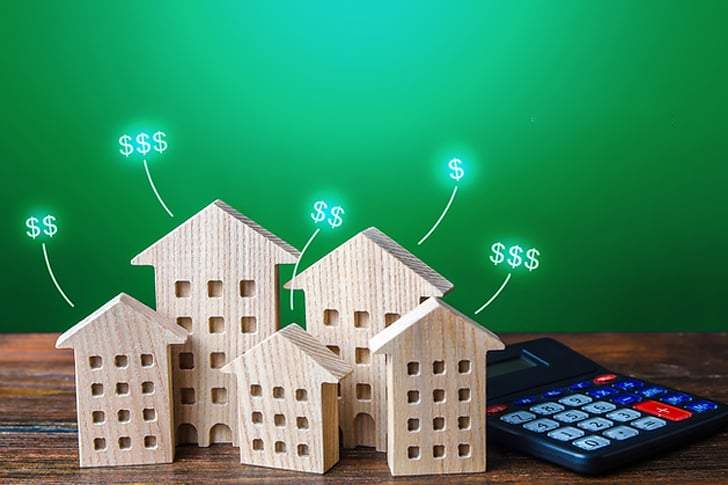Home Valuation Made Easy: Expert Tips
Determining the value of your home is crucial whether you’re planning to sell, refinance, or simply curious about its worth. This comprehensive guide provides insights and tools to help you accurately assess your home’s value in the United States.

Key Steps to Determine Your Home’s Value
- Use Online Valuation Tools:
- Zillow’s Zestimate, Redfin Estimate, and Realtor.com are popular online tools.
- These tools provide an instant estimate based on public data and recent sales in your area.
- Hire a Professional Appraiser:
- A certified appraiser conducts a thorough evaluation, considering your home’s condition, location, and market trends.
- Expect to pay between $300 and $500 for a professional appraisal.
- Consult a Real Estate Agent:
- Agents offer Comparative Market Analysis (CMA) based on similar homes recently sold in your area.
- They provide insights into local market conditions and buyer preferences.
- Analyze Comparable Properties:
- Look at recently sold homes in your neighborhood that are similar in size, condition, and features.
- Adjust for differences such as additional bedrooms, renovations, or larger lots.
- Consider Home Improvements:
- Upgrades like a new roof, remodeled kitchen, or updated bathroom can increase your home’s value.
- Energy-efficient improvements also appeal to buyers and may enhance value.
- Evaluate Market Conditions:
- Understand whether it’s a buyer’s or seller’s market.
- Economic factors, interest rates, and local demand affect home values.
- Check Property Records:
- Review your home’s public records for past sale prices and property tax assessments.
- Correct any errors that could affect your home’s estimated value.
- Assess Curb Appeal:
- First impressions matter; well-maintained landscaping and exterior can boost value.
- Simple upgrades like a fresh coat of paint or new front door can make a difference.
- Factor in Location:
- Proximity to schools, parks, and amenities influences your home’s value.
- Neighborhood safety and future development plans are also important.
- Understand Local Zoning Laws:
- Zoning can impact property value, especially if there are restrictions on usage or future development.
Frequently Asked Questions (Q&A)
Q: What is the most accurate way to determine my home’s value? A: Hiring a professional appraiser is the most accurate method, as they provide a detailed assessment considering multiple factors specific to your property.
Q: How often should I reassess my home’s value? A: It’s advisable to reassess your home’s value annually or whenever significant changes occur in the market or your property.
Q: Can home improvements always increase my home’s value? A: Not all improvements yield a high return on investment. Focus on upgrades that enhance functionality and appeal to most buyers, such as kitchen and bathroom remodels.
Comparison Chart: Methods to Determine Home Value
| Method | Accuracy | Cost ($) | Time Required | Key Considerations |
|---|---|---|---|---|
| Online Valuation Tools | Moderate | Free | Instant | Good starting point but can be inaccurate |
| Professional Appraisal | High | 300-500 | Few hours | Best for precise valuation |
| Real Estate Agent’s CMA | High | Free | Few days | Useful for understanding market conditions |
| Analyzing Comparable Sales | Moderate-High | Free | Few hours | Requires local market knowledge |
Real-Life Examples and Data
- Zillow Zestimate: Jane used Zillow’s Zestimate to get an initial estimate of $350,000 for her three-bedroom home in Austin, Texas. She then consulted a real estate agent who provided a CMA suggesting a list price of $360,000 based on recent sales.
- Professional Appraisal: Mark hired an appraiser for $400 to value his home in San Francisco. The appraisal came in at $950,000, factoring in his home’s condition and recent renovations.
- Comparative Market Analysis: Emily received a CMA from her agent, showing that similar homes in her Denver neighborhood sold for around $500,000, helping her decide on a competitive listing price.
Cities with Notable Real Estate Markets
- New York, NY: Diverse housing market with high property values.
- Los Angeles, CA: Strong market influenced by the entertainment industry.
- Chicago, IL: Mixed urban and suburban areas with varying property values.
- Houston, TX: Growing market with affordable housing options.
- Phoenix, AZ: Rapidly appreciating market due to population growth.
- Miami, FL: High demand for waterfront properties.
- San Francisco, CA: High-value market driven by tech industry.
- Seattle, WA: Competitive market with strong economic growth.
- Denver, CO: Popular for its outdoor lifestyle and tech jobs.
- Austin, TX: Fast-growing market with rising property values.
Conclusion
Accurately valuing your home involves multiple steps and considerations. By utilizing online tools, consulting professionals, and understanding market conditions, you can determine a realistic value for your property. This knowledge is essential for making informed decisions, whether selling, refinancing, or managing your investment.
Sources







Recent Comments